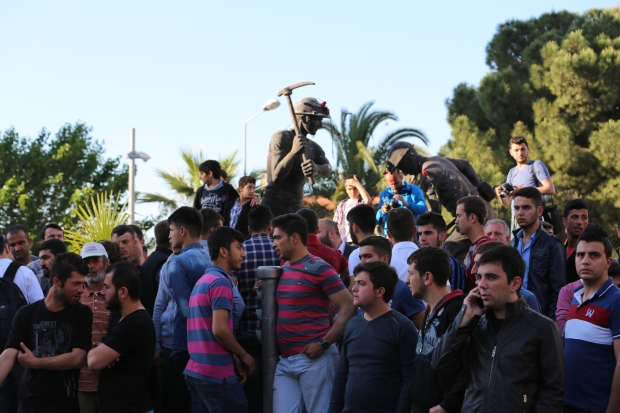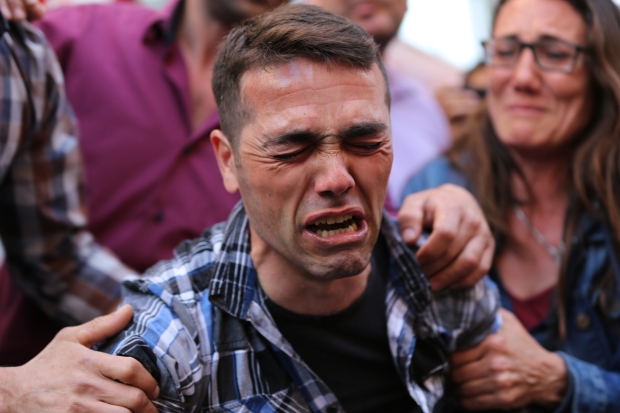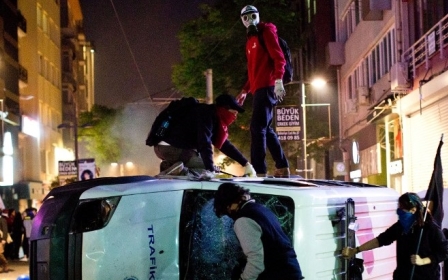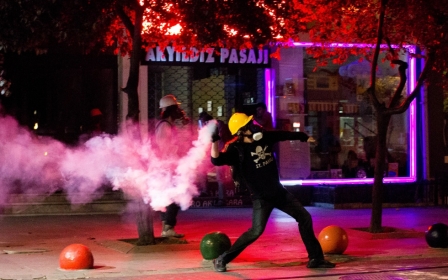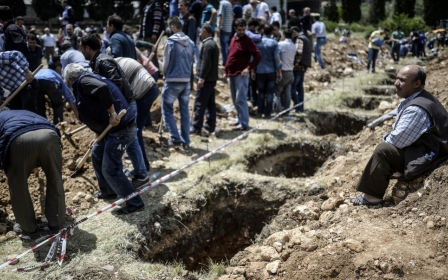Tensions mount in Turkish mining town of Soma
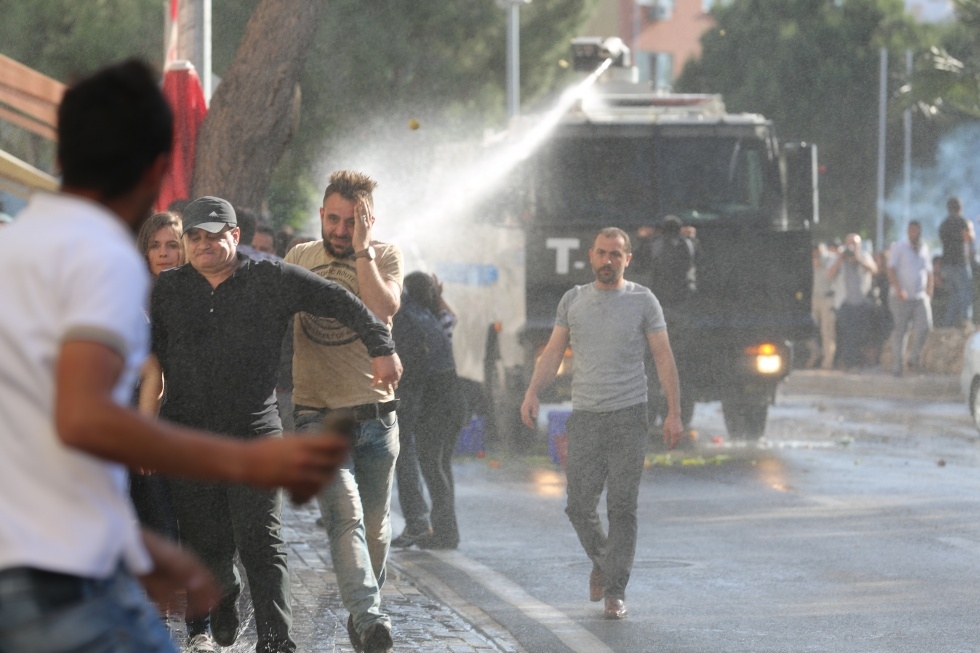
Tensions mounted in the Turkish mining town of Soma on Friday with police firing tear gas and water cannons to disperse demonstrators who gathered to condemn the authorities' response to the worst mining accident in the country's history.
"We are here to condemn the conditions of miners, to say no to profit made on the back of cheap labour and to condemn the government," said Melis Bukcez, 24, a demonstrator who made the journey to Soma from the central city of Aksaray.
At the heart of the tragedy-struck town, thousands of demonstrators gathered before sunset at the foot of a statue of two miners. Some made a silent stand while others marched up a street only to be confronted by riot police who used teargas and water cannons to break up the crowds.
Some residents watching the scene from balconies booed the men in uniform.
One miner who survived Tuesday's explosion swung in anger from the sidewalk, where he was sitting and sobbing.
New MEE newsletter: Jerusalem Dispatch
Sign up to get the latest insights and analysis on Israel-Palestine, alongside Turkey Unpacked and other MEE newsletters
"I didn't work for seven years in a mine to be beat up by police," he shouted.
Protesters directed their anger at the owner of the mining company. Their slogans also reflected the view that the government and company executives are downplaying the death toll of the mining accident - which they put at 284, with a maximum of 18 people still trapped underground.
"Killer, killer Ramadan," chanted the crowd in reference to Ramadan Dogru, general manager of the Soma company, who is married to a member of the ruling party. The government is accused of ignoring requests to probe accidents in coal mines in the Soma area.
Inspectors had found the Soma mine compliant with safety regulations during their last visit on 17 March, according to the Turkish ministry of labour and social security, cited by AFP. That finding has only added fuel to public anger.
"The government and the company owners are close. If you (the inspector) are employed by them, then of course you are going to say everything is ok. In all the audits, the company got full notes (top marks). How is that possible?" asked one demonstrator from Izmir.
Youth from across Turkey travelled to Soma to express anger but also to seize an opportunity to fan the flames of anti-government sentiment, already running high this year after a series of corruption allegations centred on Prime Minister Recep Tayyip Erdogan and his allies.
The accident also comes at a sensitive time - just before the one-year anniversary of the Gezi Park protest movement - could prove to be a real test for the prime minister whose party won local elections in March.
Soma's mining disaster proved a springboard for fresh protests in all major cities this week. The ruling party submitted to parliament a proposal to investigate the mine blast.
Far away from the politics, at the cemetery and at the mine site in Soma, families continued to grieve. The love and loss of relatives was mirrored in fresh flowers and football team T-shirts draped over the graves of miners.
Black billboards expressing condolences sprung up in the town overnight, but questions over the death toll and how the accident happened lingered in the small town of 105,000 people. The unfinished equation was spray painted on a road sign with Soma's population: "105,000 - 302?"
A maximum of 18 people remain trapped inside the mine, said Energy Minister Yildiz on Friday, estimating that the final death toll would be around 301 or 302 in revised figures. Those numbers contrast with higher estimates given by rescue workers and the media.
Miner Mohamed Kilit, another survivor, waited by the heavily guarded entrance of the mine in the hope that rescue workers would finally retrieve the body of his father who also worked there.
"I am not just mourning my father. I am mourning also my friends and our way of life," he said.
Middle East Eye delivers independent and unrivalled coverage and analysis of the Middle East, North Africa and beyond. To learn more about republishing this content and the associated fees, please fill out this form. More about MEE can be found here.


